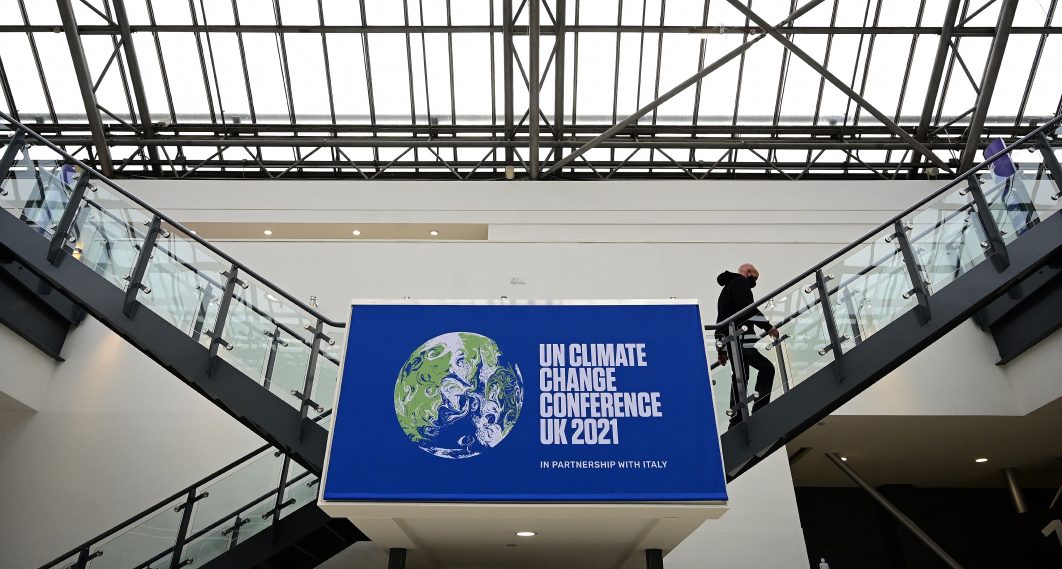
• Walk the talk on climate change, Buhari tells rich nations
Nigeria and 49 other countries, yesterday, at the UN Climate Change Conference in Glasgow, Scotland (COP26), committed to developing climate-resilient and low-carbon health systems.
The countries that have joined the COP26 Health Programme include Argentina, Bahamas, Bahrain, Bangladesh, Belgium, Belize, Bhutan, Cape Verde, Central African Republic, Chile, Colombia, Costa Rica, Dominican Republic, Egypt, Ethiopia, Fiji, Germany, Ghana, Indonesia, Ireland, Jamaica, Jordan, Kenya, Lao PDR, Madagascar, Malawi, Maldives, Morocco, Mozambique, Nepal, Netherlands.
Others are: Nigeria, Norway, Oman, Pakistan, Panama, Peru, Rwanda, Sao Tome and Principe, Sierra Leone, Spain, Sri Lanka, Tanzania, Togo, Tunisia, Uganda, United Arab Emirates, United Kingdom, United States of America and Yemen.
The commitments were made as part of the COP26 Health Programme, a partnership between the UK government, the World Health Organisation (WHO), the United Nations Framework Convention on Climate Change (UNFCCC) Climate Champions and health groups, such as Health Care Without Harm.
According to a statement by WHO, the governments of these 50 countries, which include some of those most vulnerable to the health harms caused by climate change, as well as some of the world’s biggest carbon emitters, committed to taking concrete steps towards creating climate-resilient health systems.
Also, WHO and the International Organisation of La Francophonie (OIF), yesterday, signed an agreement that gives political and legal anchoring to cooperation between the two bodies.
Mrs. Louise Mushikiwabo, Secretary General of La Francophonie, and Dr. Tedros Adhanom Ghebreyesus, WHO Director-General, signed the agreement at the WHO Headquarters.
It builds on the memorandum of understanding signed by the two organisations in April 2021, setting out the main areas of joint action, including the WHO Academy, advancing universal health coverage, primary health care and malaria control.
This agreement now allows the OIF and WHO to participate mutually in the governing bodies of the two, according to the rules specific to each.
MEANWHILE, President Muhammadu Buhari has called on rich nations to exhibit practical financial commitments rather than make hollow promises on tackling climate change in Africa.
Buhari spoke at the opening plenary of the COP-26 summit in Glasgow.
According to a statement by Garba Shehu, his Senior Special Assistant on Media and Publicity, the President said: “(It) wasn’t just about the regurgitation of Nigeria’s commitment to climate change but an important message to the rich nations of the world that we, in Africa, have heard enough of them talking their talk; it’s high time they walked their talk.”
Buhari’s speech, which centred on a number of issues agitating Africa and developing countries, criticised rich countries – the major emitters that brought the world’s climate to this sorry state – for making hollow promises toward climate finance.
He told world leaders that the goal of transitioning from fossil fuel to clean energy and reaching a net zero ambition for greenhouse emission would require critical infrastructure to be in place in developing countries.
The President, who described the consequences of climate change in Nigeria as devastating, said his government has responded by encouraging significant investment in renewable energy in the form of hydroelectric and solar projects.
“We have introduced reforms in the agriculture sector to reduce reliance on imports. We have expanded our protected areas by creating ten additional national parks, and established a 1,500km long green wall across frontline states to arrest desert encroachment, stretching from the North West to the North East; and we have stepped up the implementation of afforestation and reforestation programmes, including restoration of coastal/mangrove ecosystem.”



